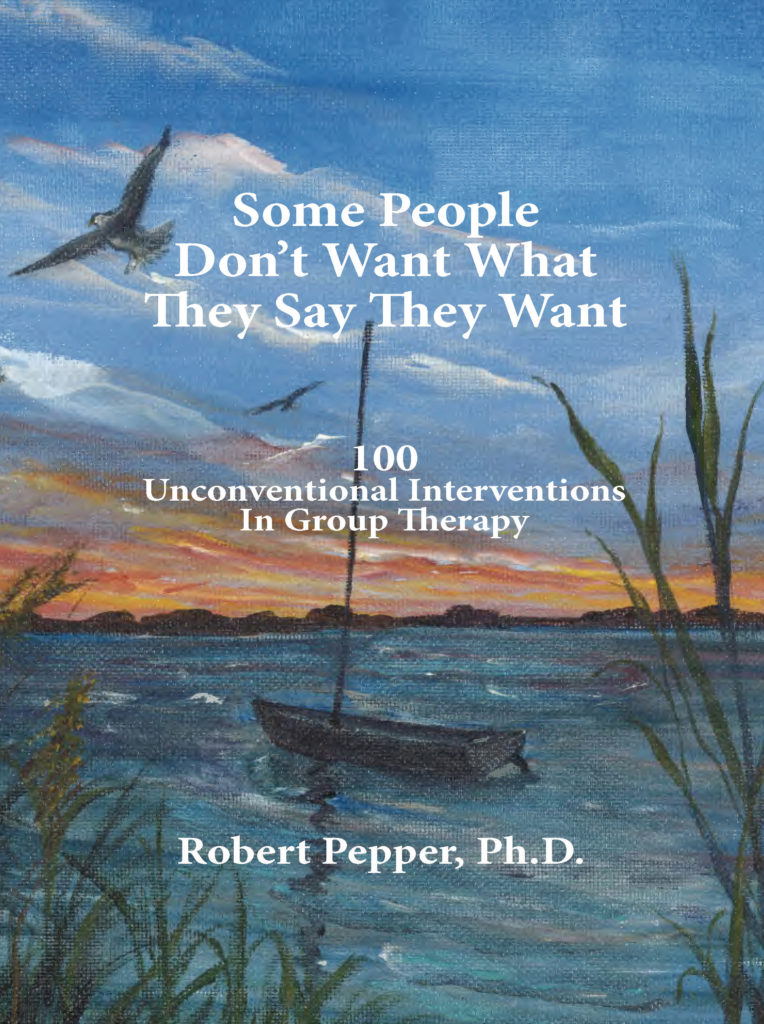 amazon.comclick here to purchase
amazon.comclick here to purchase
“Dr. Pepper has provided a potpourri of “unconventional” interventions in this book. But these should not be confused with “spontaneous” or “off-the-cuff” interventions. Indeed, what is unique is that the responses all follow the dowsing rod of theory. As stated in the Preface, these interventions are not for the inexperienced or faint-hearted. But, in dealing with particularly intransigent problems, these interventions may offer ways to reestablish therapeutic movement.“
— J. Scott Rutan, Phd., CGP, DFAGPA
“Your book is really inspiring me! I should probably join group therapy for myself! And one day i will start to run groups myself…. I love the examples you use in group to illustrate a concept or learning tool. I feel inspired to explore more and want to do it….. You will make good therapists into great therapists.”
— Susan Grinberg, Psychotherapist, Los Angeles, CA.
ABOUT THE BOOK
To love and to be loved are two of the most important goals of life; and yet many people undermine themselves in their quest to attain these very goals. Group therapy can help them resolve roadblocks to emotional intimacy. In order for group leaders to master the techniques of group psychotherapy, it is imperative to have a clear theoretical understanding of the nature of interpersonal change in analytic treatment and the leader’s role in facilitating it. This can only come from many years of a combination of experience as a treatment group member and participation in training groups. There is no short-cut. While this book was written primarily with professional group therapists in mind, I believe that it would be of value to therapists that are interested in training in group therapy. Past, present or future group members may be intrigued by how the process works, and the general population of readers would be fascinated to view in an insider’s tool chest of the techniques of a powerful healing profession.
Some People Don’t Want What They Say They Want is an amalgam of unconventional interventions culled from more than thirty-five years of training with senior leaders of various approaches to group therapy, such as gestalt, ego analytic, modern analytic, and psychodynamic. For example, the mastery of modern analytic techniques, such as bridging, mirroring, joining, out-crazying, focusing on minutiae, and confronting, is an important step toward mastering the craft of the therapist. Some of the unconventional interventions herein are my own original protective and supportive techniques, which I have developed while training nascent group leaders and leading groups in public schools, colleges, training institutes, prisons, clinics, and my own private practice.